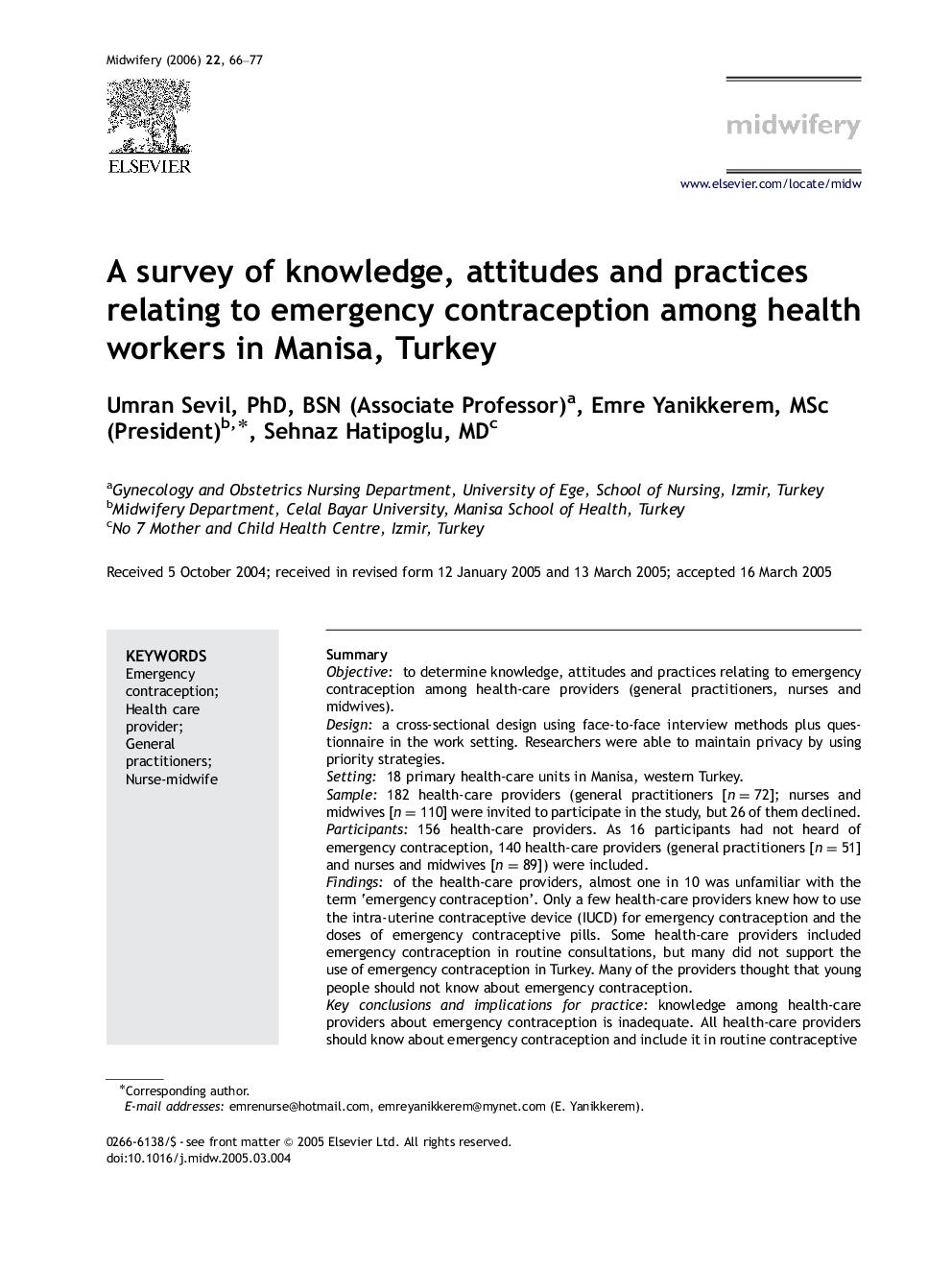| Article ID | Journal | Published Year | Pages | File Type |
|---|---|---|---|---|
| 1085544 | Midwifery | 2006 | 12 Pages |
SummaryObjectiveto determine knowledge, attitudes and practices relating to emergency contraception among health-care providers (general practitioners, nurses and midwives).Designa cross-sectional design using face-to-face interview methods plus questionnaire in the work setting. Researchers were able to maintain privacy by using priority strategies.Setting18 primary health-care units in Manisa, western Turkey.Sample182 health-care providers (general practitioners [n=72n=72]; nurses and midwives [n=110n=110] were invited to participate in the study, but 26 of them declined.Participants156 health-care providers. As 16 participants had not heard of emergency contraception, 140 health-care providers (general practitioners [n=51n=51] and nurses and midwives [n=89n=89]) were included.Findingsof the health-care providers, almost one in 10 was unfamiliar with the term ‘emergency contraception’. Only a few health-care providers knew how to use the intra-uterine contraceptive device (IUCD) for emergency contraception and the doses of emergency contraceptive pills. Some health-care providers included emergency contraception in routine consultations, but many did not support the use of emergency contraception in Turkey. Many of the providers thought that young people should not know about emergency contraception.Key conclusions and implications for practiceknowledge among health-care providers about emergency contraception is inadequate. All health-care providers should know about emergency contraception and include it in routine contraceptive consultations. Thus, continuing education information programmes are required. Further research into the knowledge, practices and attitudes of health-care providers is needed to understand the underlying reasons for the hesitant attitudes among health professionals.
